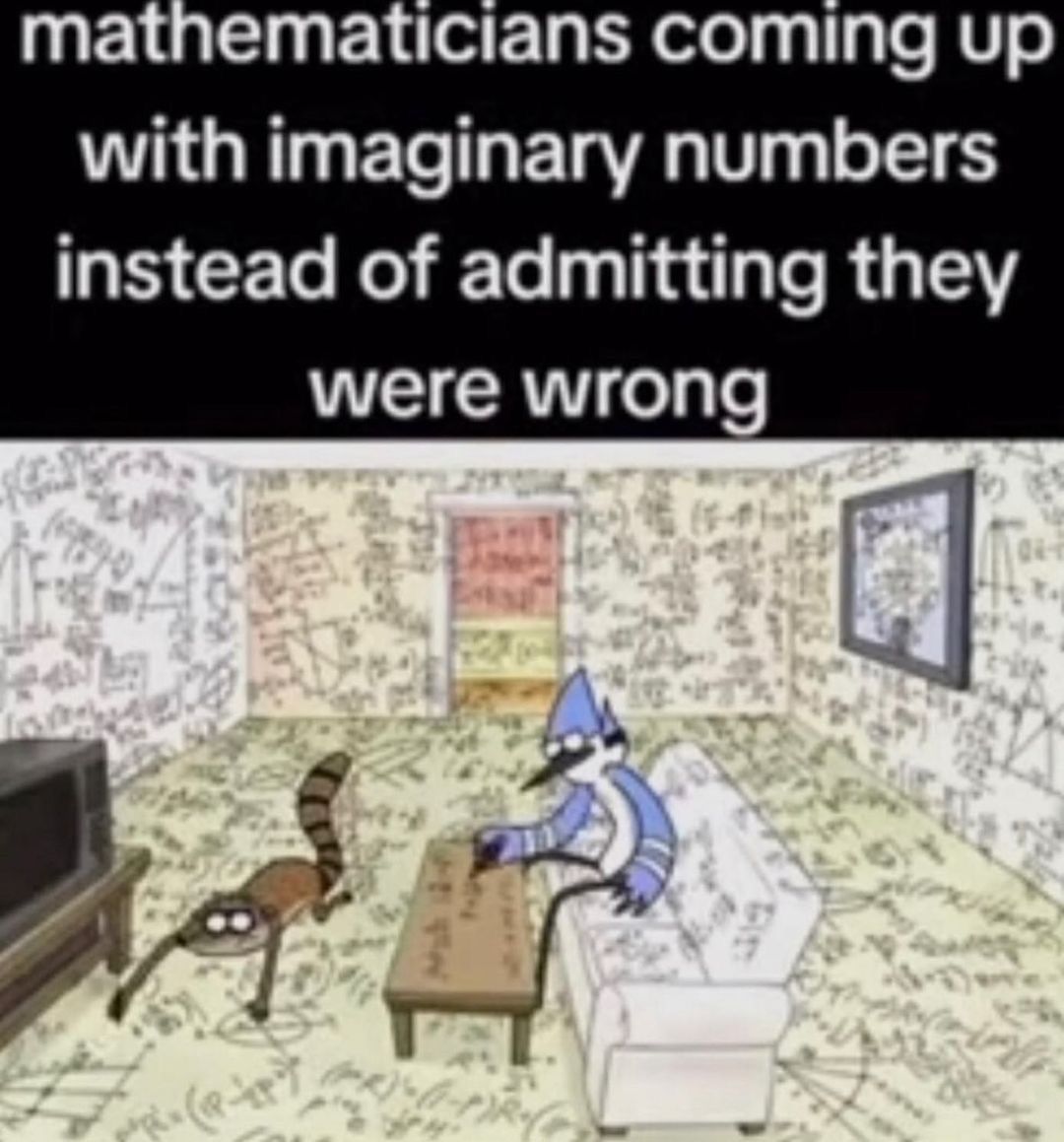this post was submitted on 07 Jun 2024
808 points (95.9% liked)
memes
15524 readers
3050 users here now
Community rules
1. Be civil
No trolling, bigotry or other insulting / annoying behaviour
2. No politics
This is non-politics community. For political memes please go to !politicalmemes@lemmy.world
3. No recent reposts
Check for reposts when posting a meme, you can only repost after 1 month
4. No bots
No bots without the express approval of the mods or the admins
5. No Spam/Ads
No advertisements or spam. This is an instance rule and the only way to live.
A collection of some classic Lemmy memes for your enjoyment
Sister communities
- !tenforward@lemmy.world : Star Trek memes, chat and shitposts
- !lemmyshitpost@lemmy.world : Lemmy Shitposts, anything and everything goes.
- !linuxmemes@lemmy.world : Linux themed memes
- !comicstrips@lemmy.world : for those who love comic stories.
founded 2 years ago
MODERATORS
you are viewing a single comment's thread
view the rest of the comments
view the rest of the comments

Sometimes it's better to just accept that you don't get the joke and move on.
I might not find a joke funny, or I might not have the necessary context to appreciate it; that's "not getting" a joke. If it's possible to have too much context to appreciate a "joke", it's at the expense of people who know more than the audience.
Bruh, who cares.
Stop complaining.
It might seem harmless, but the purpose of a joke is to draw a distinction between those who get it and those who don't, fostering a sense of community. In this "joke", the in-group is people who don't know something; the community ideal fostered there is that knowledge is undesirable, that anything that seems unintuitive to the uninformed mind is inherently ridiculous. The "joke" has no effect if it doesn't do this. Entertaining the idea without challenge is dangerous.
Grow up dude.
That's where you're wrong. The joke is based around a play on words: the generally accepted definition of imaginary, and a math term. Thus, the in-group for this joke are people familiar with the common definition of imaginary, and familiar with the fact that "imaginary numbers" is a term used by mathematicians. The joke being that, if they use the term "imaginary numbers", then someone came up with numbers that don't fundamentally exist, and they were only used to cheat out an answer to a difficult problem. Of course, in math this isn't the case, the numbers most definitely exist. To me it just seems like you're trying to be a pompous know-it-all and ruin people's fun, but you can't even do that correctly because you didn't understand what the joke even was.